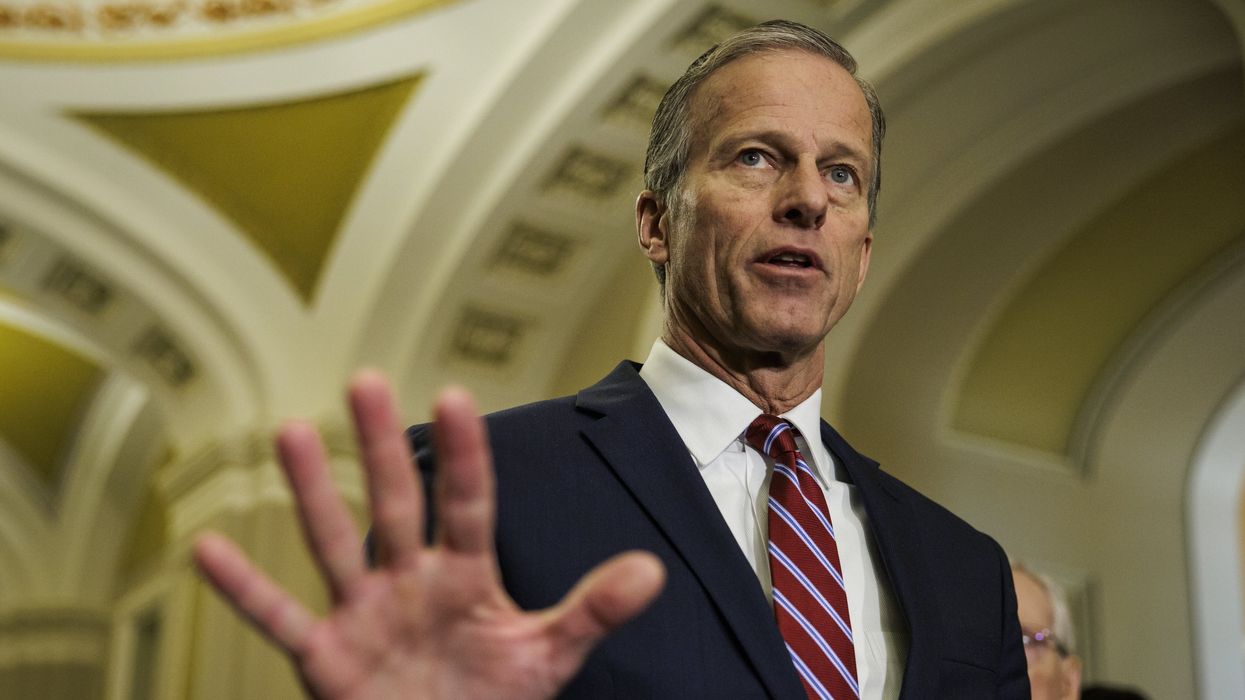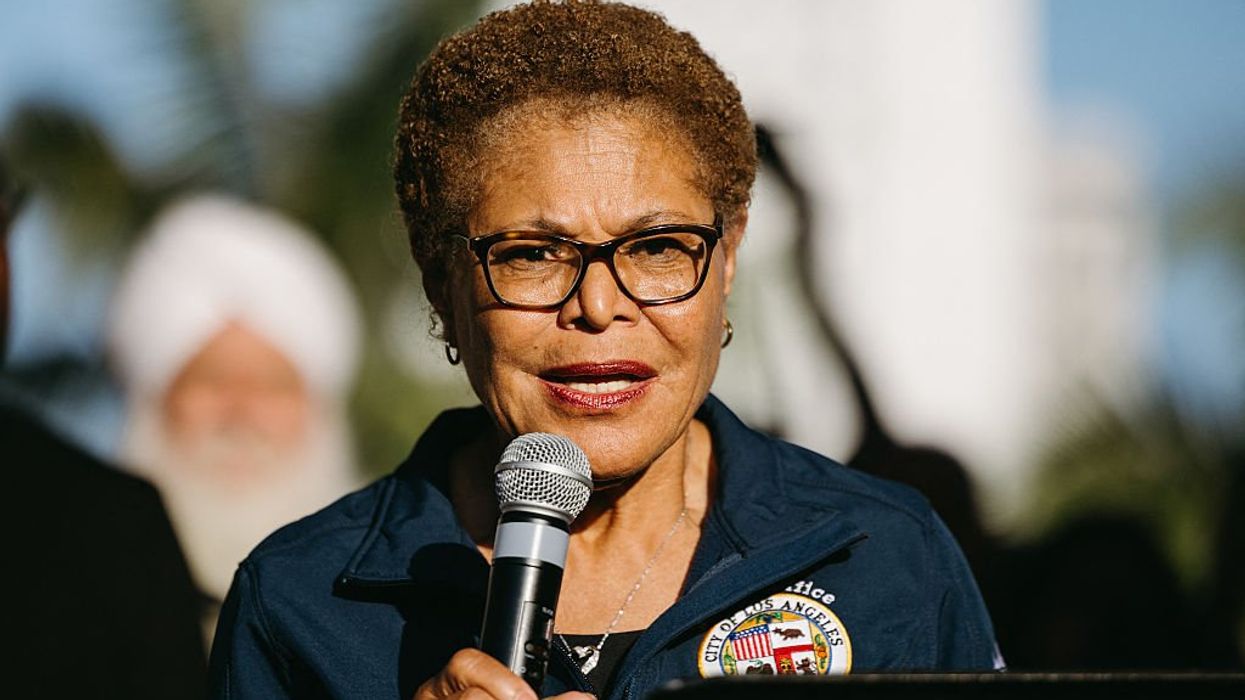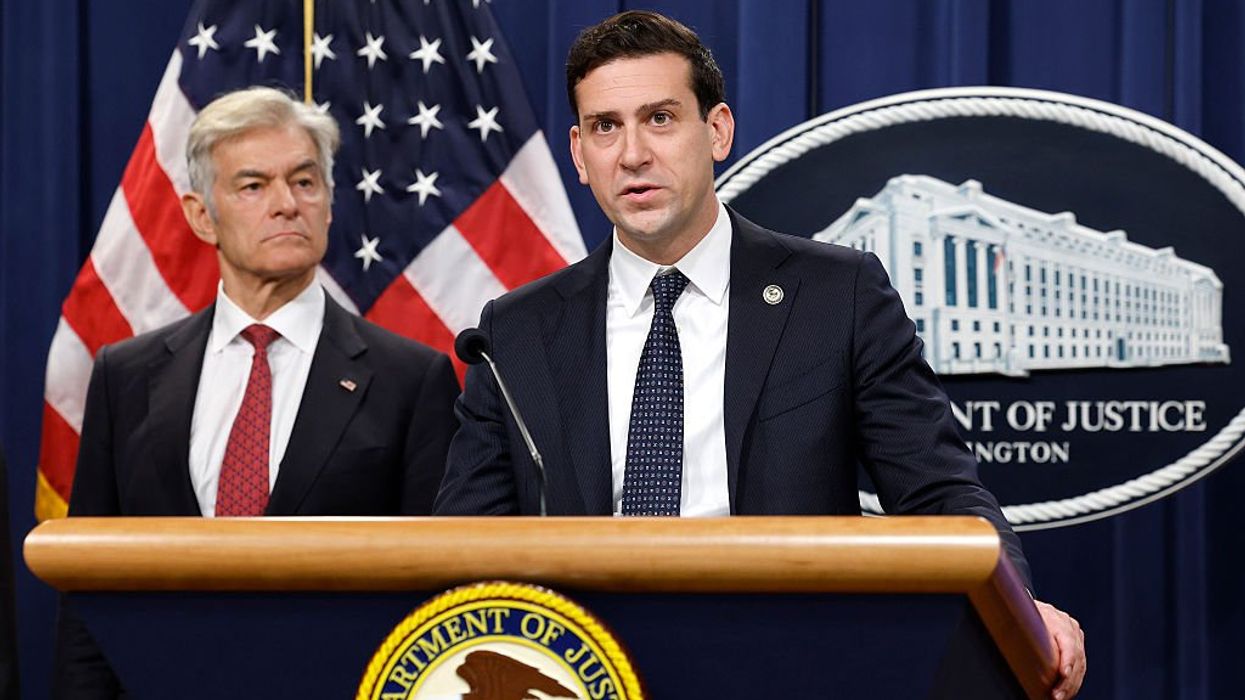Years ago, I was in the middle of a spirited debate about homosexuality. The other individual argued that despite gay marriage’s legalization in my state, I’d still be able to hold my traditional views; that we’d be able to live side by side despite our differences of opinion.
My retort? “Mark my words. In our lifetimes I will not be able to publicly hold the views I’m sharing with you now.”
The individual disagreed—I told the person to check back with me in a few years.
Enter Houston, Texas.
According to TheBlaze, the city “has subpoenaed church sermons, among other documentation, from five local faith leaders.”
 U.S. Sen. Ted Cruz (R-Texas) is surrounded by preachers as he addresses a crowd at a Houston church Thursday, Oct. 16, 2014. Cruz spoke about a legal dispute involving several pastors fighting subpoenas from Houston city attorneys demanding they turn over copies of any sermons they delivered that relate to Houston’s equal rights ordinance championed by the city’s gay mayor, Annise Parker. (AP Photo/Pat Sullivan)
U.S. Sen. Ted Cruz (R-Texas) is surrounded by preachers as he addresses a crowd at a Houston church Thursday, Oct. 16, 2014. Cruz spoke about a legal dispute involving several pastors fighting subpoenas from Houston city attorneys demanding they turn over copies of any sermons they delivered that relate to Houston’s equal rights ordinance championed by the city’s gay mayor, Annise Parker. (AP Photo/Pat Sullivan)
These demands come on the heels of a new equal rights ordinance meant to supposedly propagate anti-discrimination practices, like allowing men to use ladies’ restrooms if they identify more with the female gender than the male.
Some religious leaders have participated in a lawsuit against the broad-sweeping “equality” ordinance, and while the pastors in question aren’t involved in the suit, they have stood against parts of the ordinance.
In the face of a backlash, the city has now "narrowed" that demand to include "[a]ll speeches or presentations related to [the Houston Equal Rights Ordinance] or the Petition prepared by, delivered by, revised by, or approved by [the pastors] or in [the pastors’] possession."
In other words, they're still targeting these pastors.
We can have a discussion about the ordinance itself. We can have a discussion about whether or not homosexuality is wrong. We can have a discussion about the legalization of gay marriage and what that really means. We can have a discussion about “politics” from the pulpit. We can have what is perhaps the most important debate here, and that is the protection of every American’s First Amendment Right to both free speech and freedom of religion.
Instead, let’s first and foremost have a discussion about the dangerous double standard in this country.
Have you ever noticed that a person only has equal rights in the homosexuality/transgender/asexuality debate, as long as the person either stays silent about it, or comes down in support of it?
In other words, you’ve got Constitutionally-guaranteed rights, as long as you agree with a certain side.
Somehow we’ve turned belief about homosexuality, transgender, asexuality or other “gender” identities” into thequalifier for whether or not a person has a right to free speech, freedom of religion, et al.
How exactly did we get here?
As former bakery owner Melissa Klein wisely noted, there are two key lies society (and especially government) has accepted:
- “If you disagree with someone’s lifestyle, you must fear or hate them.”
- “To love someone means that you must agree with everything they believe or do.”
Klein lost her business over her decision not to bake a wedding cake for a lesbian couple.
Is the Houston subpoena really only about supposed "politics" from the pulpit? (If that's the case, isn't it funny how people like Jeremiah Wright get away with it...)
Or, is it about proving that because of disagreement with a lifestyle they must “hate” gay people?
Further, what does a move like this do, if not intimidate a person into “agreement” -- or at least compliant silence?
Let’s get this straight. We all have fundamental rights as human beings: we have a right to life; we have a right to liberty; we have a right to the pursuit of happiness. That’s it. We don’t have the right to have our judicial and political system fashion the world into what we want it to be.
There’s a reason why we (used to, at least) monitor certain mosques, even though this would seem to fly in the face of the First Amendment rights I support. In those instances, leaders within those walls are directly seeking to trump other human beings' right to life and liberty through global Islamic terror.
Unless these pastors are calling for the harm of someone, there’s absolutely no reason Houston officials have any business getting involved.
(And just so we're clear: no—in the broader debate over homosexuality in this country, the Founders' concepts of “liberty” and “pursuit of happiness” do not give a person or group the right to redefine an institution that is not government’s or society’s, but religion’s... and in reality, God’s.)
This whole debate is why (despite society’s fight to the contrary) absolutes are so important. We can have debates and disagreements about a million things, but can share the very same fundamental right to life our Founders espoused, so long as there is a core, uniform respect for the right to life.
That respect for life means I can stand alongside a gay person (someone with whom I fundamentally disagree) against the violence waged against gay people in nations like Iran. Why? Well, first and foremost because I'm a Christian and I am to love my neighbor. And secondly, because in the world I discussed above, we’d agree on one thing: preserving life is important above all.
Instead, we are quickly becoming a society that believes that disagreement with gay marriage (or any other issue) automatically equals hate, and that that hate must obviously be subdued and punished.
Religious beliefs about gay marriage, homosexuality, or other gender issues have been made tantamount to movements like the Ku Klux Klan; in other words, that disagreement means the person wishes ill to befall those with whom he or she disagrees.
And of course, we’d never say that the Klan has a Constitutional right to mistreat someone just because they hold a certain belief.
In that light, Houston makes perfect sense, right?
And until we put an end to the idea that disagreement equals hate (and that our Constitution is a living, breathing, malleable document), any rational assertion about our Constitutional right to freedom of religion and freedom of speech remains a completely silenced truth.
Mary Ramirez is a full time writer, creator of www.afuturefree.com – a political commentary blog, and contributor to The Chris Salcedo Show. She can be reached at: afuturefree@aol.com; or on Twitter: @AFutureFree
-
TheBlaze contributor channel supports an open discourse on a range of views. The opinions expressed in this channel are solely those of each individual author.


 U.S. Sen. Ted Cruz (R-Texas) is surrounded by preachers as he addresses a crowd at a Houston church Thursday, Oct. 16, 2014. Cruz spoke about a legal dispute involving several pastors fighting subpoenas from Houston city attorneys demanding they turn over copies of any sermons they delivered that relate to Houston’s equal rights ordinance championed by the city’s gay mayor, Annise Parker. (AP Photo/Pat Sullivan)
U.S. Sen. Ted Cruz (R-Texas) is surrounded by preachers as he addresses a crowd at a Houston church Thursday, Oct. 16, 2014. Cruz spoke about a legal dispute involving several pastors fighting subpoenas from Houston city attorneys demanding they turn over copies of any sermons they delivered that relate to Houston’s equal rights ordinance championed by the city’s gay mayor, Annise Parker. (AP Photo/Pat Sullivan)





